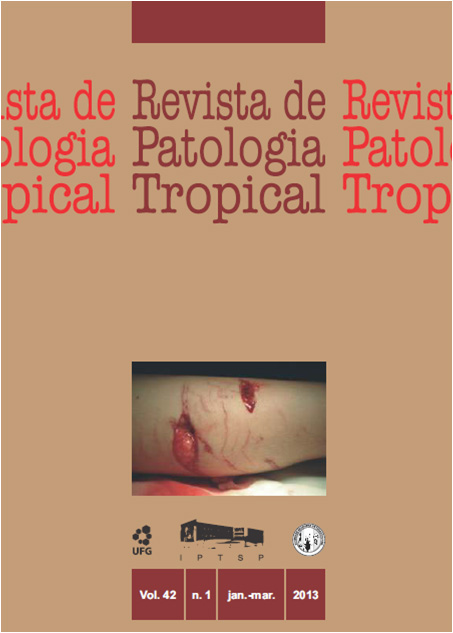EDITORIAL
DOI:
https://doi.org/10.5216/rpt.v42i1.25401Abstract
After 41 years of this journal’s uninterrupted publication, four editors and more than 1,000 original articles published on different aspects of the so called “tropical diseases”, some thoughts and changes arise.
The initial objectives have been accomplished. Collections of the Revista de Patologia Tropical are displayed at the world’s main libraries specializing in tropical diseases, from Geneva to Nagasaki, including London, Washington and throughout Latin-America. Several crucial papers have been published and are frequently quoted. The distribution of knowledge produced by Latin Americans in this specific area, has been achieved.
Nevertheless, during these 4 decades several seismic changes occurred in the way science is communicated that required us to adapt. The old arguments of a paper format versus an electronic one do not make sense anymore, since knowledge is stored in the “cloud”; without the internet, virtually nothing could be achieved in science today. We tried to adapt to these changes smoothly and efficiently. In 1995 we were among the first Brazilian journals to communicate by e-mail with authors and referees. Later, an online edition became essential and new partners were included (World Health Organization, Pan-American Health Organization, The Brazilian Society for Parasitology) as well as authors from outside Brazil. Endogeny (papers from authors at the same institution) was maintained below 20% and articles in English or Spanish were incentivized. The problem of plagiarism was kept under control by one of our editors (EKKF).
The business of editing newspapers and journals is a never-ending battle, as before each issue is published work has already begun on the next. What will the next change be? In this issue, all papers in English (almost half of them) were edited by a specialist company, Global Science Editing Ltd. in London. We are indebted to our former English reviewer, Daniela, who worked for us over the last 12 years for free. This arrangement was no longer possible as the number of papers written in English increased. We have tried to satisfy the requirements of indexation and financing agencies, keeping the proportion of rejection around 25%.
There are still many challenges ahead and things to improve: the format, the decrease in printed issues, indexation in national and international databases, all questions that we intend to address in the near future, with the active participation of the editorial board. As always, we are indebted to the three main participants in any scientific publication: the author, the reviewer and the reader. Editors only have an enzymatic action, promoting and accelerating decisions. We have always had the support of these three participants, year after year, a fact that keeps the flame alive and acts as a stimulus to move forward.
The Editorial Board
March, 2013
Downloads
Downloads
How to Cite
Issue
Section
License
The manuscript submission must be accompanied by a letter signed by all authors stating the full name and email address, confirming that the material has not been published or is under consideration for publication elsewhere, and agreeing to transfer copyright in all media and formats for Journal of Tropical Pathology. The authors will not be paid for published articles. They are solely responsible for the content of those articles, even if the Editor holds the right to adjust them to the norms of the journal.
The reviewers will not be paid for the peer review process.

